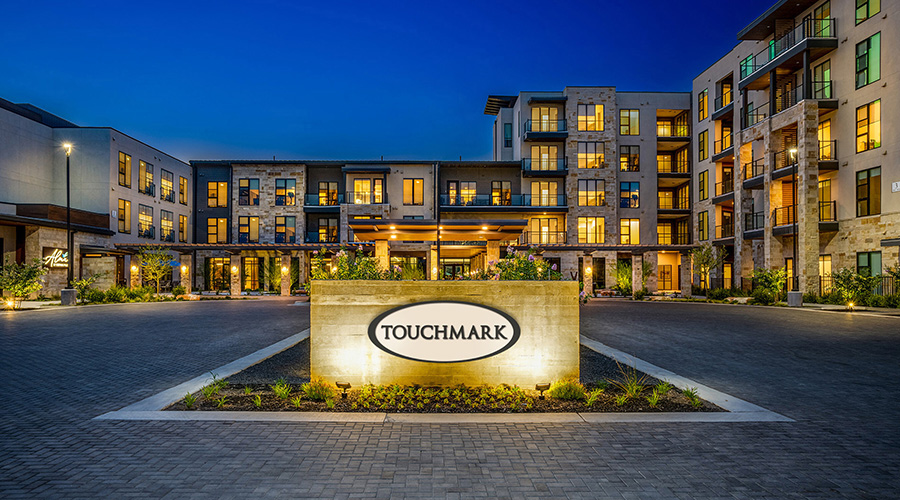As I prepare to present our “Attracting and Maintaining the Talents of Generation Next” program at the 2017 ASHE Region 6 conference in Rochester, Minn. with my Gen X Senior Engineer and Baby Boomer Director of Electrical Engineering, I am taking time to reflect on this opportunity. Presenting at a Regional healthcare engineering conference is not the norm at this early stage in one’s career. So, how did I end up here?
I entered the broader field of architectural engineering at HGA Architects and Engineers after graduating from the Masters of Architectural Engineering with a focus in Electrical Engineering at the University of Nebraska – Lincoln. When I first started at HGA, I worked on a variety of project types and was given the opportunity to see what the best fit was for my skillset and my interest. I enjoyed the complexity of healthcare design from an engineering standpoint and found myself gravitating towards those projects. I discussed my options and preferences for career trajectory with a number of people and came to the conclusion that healthcare engineering was the right choice for me. My time thus far focusing on healthcare engineering has been exciting to say the least.
Although I have only been in this industry for three years, I have had a surprisingly wide range of experiences and opportunities. I made it known early on that I was interested in being part of the entire design and implementation process and seeing how a project comes together from a vantage point of more than just my desk. That dialogue has opened doors and afforded me the opportunity to be in the room for everything from basic design meetings to high level project discussions and business development meetings. Now, I cannot say that I have been the most active in all of those conversations, but understanding how all of these different perspectives come together has certainly benefitted me and I also believe has benefited my employer.
Stereotypically, we millennials are just as (if not more) driven by why we are doing something as we are by what the specific is that task we are assigned. We also tend to value being an integral member of a team. Being present for initial discussions, instead of being provided second hand information from a team leader, provides a deeper understanding of how I am contributing to the overall goals of the team, project, and/or firm. This feeling of contribution is another factor that typically plays into millennials’ satisfaction. We are not happy “paying dues” on menial tasks; we want to feel as if we are making a difference. Of course we will do “menial” tasks but we want to feel valued for our contribution and we appreciate understanding where our task fits into the big picture.
Millennials are not going anywhere; over 30% of the building design industry is currently made up by millennials. On top of that, a 2015 survey by the National Society of High School Scholars found that 40% of high school students wanted to work in health care, with 21% hoping to work in technology/engineering. It is not a stretch to say that some portion of those technology/engineering leaning students may find themselves interested in healthcare engineering. As I mentioned earlier, even when I entered the architectural engineering field I did not picture myself working in healthcare engineering, yet three years later I find myself enthusiastic about focusing primarily on healthcare projects.
Retention rates for millennials may be alarming to those used to a more traditional career approach (i.e. Generation X and Baby Boomers). When surveyed, 60% of millennials planned on leaving their job within the first three years, and only 16% saw themselves with the same company after a decade. This is common for all fields whether it be engineering design or healthcare facilities management. One tool proven to increase retention is strong mentoring program. A variety of factors have led to a decrease in mentoring programs in our industry, to the misfortune of both new employees and their respective employers. Mentors help build a connection between a new employee and their company, give the new employee an outlet for questions and concerns, and provide a window allowing them to see how the company or facility functions from more than one perspective.
I am lucky that HGA has a formal mentoring program that I have gained a lot from, and I have also found informal mentors within the firm at various stages in their careers and from all disciplines beyond just electrical engineering. In the early years of a career there is so much to take in that a job can feel even more exciting and fast paced than what may be a normal experience. When the rate of new information starts to slow to a more reasonable pace, mentors can help provide perspective and guidance, calming any nerves or fear of plateauing.
Work/Life balance was a serious concern of mine when considering this industry. Our healthcare clients typically manage 24/7 facilities and when challenges arise we need to assist immediately, even when the timing is not ideal. While still in school, I asked a friend who had recently graduated how they managed a healthy work/life balance. Their laughter was all the response I needed. Older generations traditionally view work as a more central aspect of their life when compared to millennials and are prepared and accepting of this 24/7 demand.
They may be surprised to find that what they see as a “life” heavy work/life balance for a millennial still does not fulfill the wishes of their younger coworkers. I often find myself taking advantage of flexible hours, making sure I am at my desk in the office during core hours and when necessary to address those “immediate concerns”- but opting to work from more comfortable lounge spaces or nights/weekends when other engagements pull me away. These personal engagements can run the gamut from cycling team training to networking (read: happy hour) events at a microbrewery. As long as I communicate with my team, having a flexible work schedule allows me to alleviate some of the stresses of trying to fit all of my commitments in during a given week. At this point you may be doing a facepalm at the millennial complaining about commitments but you don’t need a spouse and children to have commitments.
Many of the concerns that the older generations have with millennials are not unique concerns. Complaints about the incoming workforce have been consistent across the decades: the younger generation is entitled, they lack focus, and they spend too much time on technology (or whatever the new-fangled thing was back in the 70s). A conversation I had with my superiors about preferred communication methods proved to be beneficial for all parties. They were surprised to find that I tend to tense up and assume something major is happening when someone approaches my desk, while in reality they just thought they were providing a desired interface for communication. For casual discussions I tend to favor our in-office instant messenger, while they place more value in face-to-face conversations.
Some forms of communication can be misunderstood as cold or threatening among individuals so it is important to not only be comfortable in your own communication style but also respect how other people communicate. Another topic I appreciated discussing with my boss was career progression. Healthcare engineering is based not only a knowledge of design, but also an understanding of numerous codes and constructability requirements, so there is a lot at stake for letting someone “give it a shot” on a project. Knowing the requirements and realistic timelines for adding responsibilities and project ownership helps me know that I am putting myself in the best position for expanding my knowledge while keeping my clients safe (and know the appropriate time to bring up my promotion). This understanding makes sure I am note seen as being entitled in the eyes of my superiors, and dispels the fear of being overlooked when promotions are announced.
It is important to note that this is just the experience of one person who works in the very specific field of healthcare engineering. Some of the strategies I have shared could help a fellow millennial or someone who is struggling with a millennial workforce, but that certainly does not make it the template for appeasing all millennials. In fact, I am often told that I am not a “typical” millennial but I have never met this self-centered, face-glued-to-tablet, whiny, 20 to mid-30s member of the workforce. I am not saying that this person does not exist, but if you take time to actually get to know the millennial sitting next to you in their cubical- the stereotype just might not be as prevalent as we are led to believe. Rather than trying to fit every person who was born in a 20 year period into a single mold, try getting to know your new hires on a personal level and make sure all expectations (yes from both parties) are brought into alignment.
Connor Frazier is an electrical designer for HGA Architects and Engineers.

 Building Sustainable Healthcare for an Aging Population
Building Sustainable Healthcare for an Aging Population Froedtert ThedaCare Announces Opening of ThedaCare Medical Center-Oshkosh
Froedtert ThedaCare Announces Opening of ThedaCare Medical Center-Oshkosh Touchmark Acquires The Hacienda at Georgetown Senior Living Facility
Touchmark Acquires The Hacienda at Georgetown Senior Living Facility Contaminants Under Foot: A Closer Look at Patient Room Floors
Contaminants Under Foot: A Closer Look at Patient Room Floors Power Outages Largely Driven by Extreme Weather Events
Power Outages Largely Driven by Extreme Weather Events